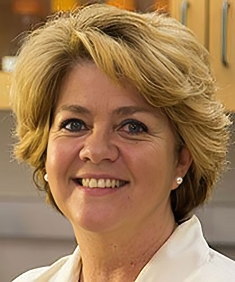Gloria Dominguez-Bello's Research on the Diversity of Gut Microbes in Rainforest-Dwelling Communities Featured
By the Rutgers Office of Communications

Can immersing yourself in a South American jungle and the high-fiber, unprocessed diet of its villagers make your gut microbes more diverse? And could it have benefits for people with obesity, type 1 diabetes and other disorders?
A study led by Rutgers University–New Brunswick researchers followed seven city-dwelling adults and children who lived in a remote Venezuelan jungle village without electricity, soap or other amenities for 16 days.
For the children, their microbiome—the beneficial germs in their intestines, skin, mouths and noses—became more diverse, with higher proportions of helpful bacteria. A similar change did not occur in the adults who visited the rainforest.
The study appears in the journal mSphere.
"The findings suggest dietary interventions to encourage a more diverse microbiome may best succeed in children, while the microbiome of adults may be more resistant to change," said senior researcher Maria Gloria Dominguez-Bello, a professor in Rutgers–New Brunswick's Department of Biochemistry and Microbiology and Department of Anthropology.